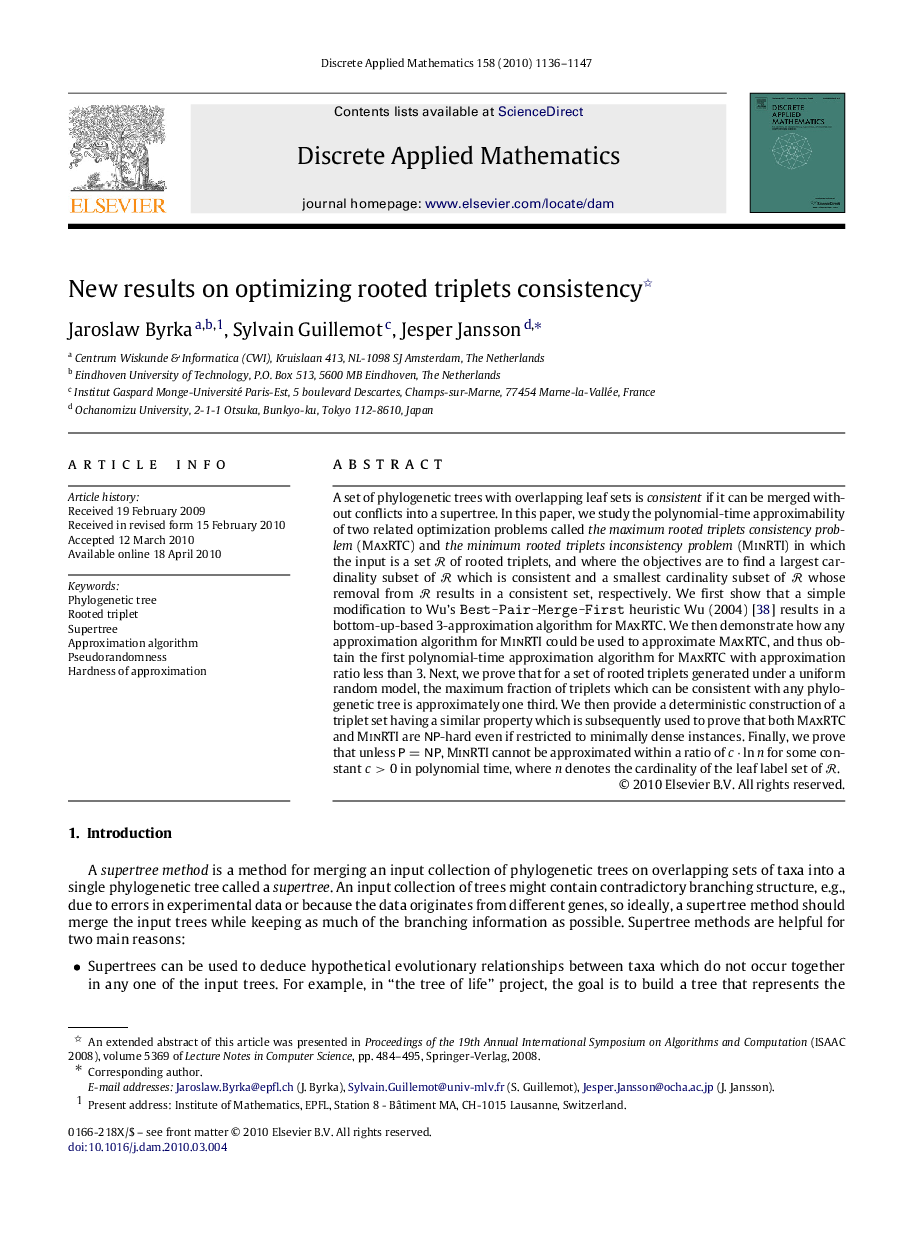| Article ID | Journal | Published Year | Pages | File Type |
|---|---|---|---|---|
| 421288 | Discrete Applied Mathematics | 2010 | 12 Pages |
A set of phylogenetic trees with overlapping leaf sets is consistent if it can be merged without conflicts into a supertree. In this paper, we study the polynomial-time approximability of two related optimization problems called the maximum rooted triplets consistency problem (MaxRTCMaxRTC) and the minimum rooted triplets inconsistency problem (MinRTIMinRTI) in which the input is a set RR of rooted triplets, and where the objectives are to find a largest cardinality subset of RR which is consistent and a smallest cardinality subset of RR whose removal from RR results in a consistent set, respectively. We first show that a simple modification to Wu’s Best-Pair-Merge-First heuristic Wu (2004) [38] results in a bottom-up-based 3-approximation algorithm for MaxRTCMaxRTC. We then demonstrate how any approximation algorithm for MinRTIMinRTI could be used to approximate MaxRTCMaxRTC, and thus obtain the first polynomial-time approximation algorithm for MaxRTCMaxRTC with approximation ratio less than 3. Next, we prove that for a set of rooted triplets generated under a uniform random model, the maximum fraction of triplets which can be consistent with any phylogenetic tree is approximately one third. We then provide a deterministic construction of a triplet set having a similar property which is subsequently used to prove that both MaxRTCMaxRTC and MinRTIMinRTI are NP-hard even if restricted to minimally dense instances. Finally, we prove that unless P=NP, MinRTIMinRTI cannot be approximated within a ratio of c⋅lnnc⋅lnn for some constant c>0c>0 in polynomial time, where nn denotes the cardinality of the leaf label set of RR.
